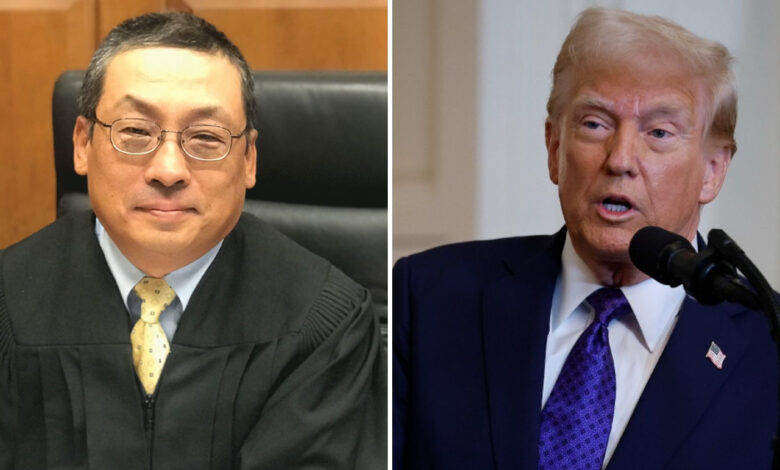Biden Judge Blocks Trump Admin From Dismantling Education Dept.

A federal judge on Thursday blocked President Donald Trump’s broad executive actions aimed at dismantling the Department of Education, ruling that such moves require congressional authorization.
U.S. District Judge Myong Joun of Massachusetts also issued a preliminary injunction ordering the Trump administration to reinstate employees who were dismissed in mass layoffs earlier this year. The administration has pledged to appeal the ruling.
“It is only reasonable to expect that an RIF [reduction in force] of this magnitude will likely cripple the Department. The idea that Defendants’ actions are merely a ‘reorganization’ is plainly not true,” Joun, a Biden appointee, wrote in his opinion.
Trump signed an executive order in March to begin winding down operations at the Education Department.
Before the court’s intervention, Education Secretary Linda McMahon had moved to lay off more than 1,300 employees. Combined with roughly 600 voluntary departures, the cuts reduced the Department of Education’s workforce by about half, from its original size of approximately 4,000, the New York Post reported.
While publicly signaling an intent to eliminate the department, the Trump administration argued in court filings that the mass terminations were simply an administrative measure aimed at improving government efficiency—an action it claimed fell within the secretary’s legal authority.
“Defendants do acknowledge, as they must, that the Department cannot be shut down without Congress’s approval, yet they simultaneously claim that their legislative goals … are distinct from their administrative goals (improving efficiency),” added Joun. “There is nothing in the record to support these contradictory positions.”
The Department of Education was created in 1979 during President Jimmy Carter’s administration. Since then, many conservatives have advocated for its elimination, a goal Trump has openly embraced.
However, dismantling the department would require congressional approval, specifically, overcoming a likely Democratic filibuster in the Senate, which would necessitate at least 60 votes.
In response to the recent court ruling halting its efforts, the Trump administration accused Joun of “overstepping” his judicial authority.
“President Trump and the Senate-confirmed Secretary of Education clearly have the authority to make decisions about agency reorganization efforts, not an unelected Judge with a political axe to grind,” DOE spokeswoman Madi Biedermann said in a statement.
“This ruling is not in the best interest of American students or families. We will immediately challenge this on an emergency basis,” Biedermann added, per The Post.
Meanwhile, the U.S. Supreme Court was divided evenly on Thursday in a high-profile case involving the nation’s first religious charter school.
The nation’s highest court, in a 4-4 ruling, upheld an Oklahoma Supreme Court verdict that ruled the proposed Catholic school unconstitutional.
Justice Amy Coney Barrett recused herself from the case, resulting in the split. Although she did not explain her decision, the former University of Notre Dame law professor has several connections to the attorneys representing the St. Isidore of Seville Catholic Virtual School.
Religious organizations have won a succession of votes from the conservative majority recently, permitting public funds to be used on religious instruction and programs. Critics said that a victory for the school in this case may have significantly increased the availability of government financing for religious schools or caused states to withdraw or reconsider charter school schemes.
The high court issued a brief, unsigned order stating merely that it was divided on the issue. The Supreme Court last divided 4-4 in 2022, in a significantly more technical decision about when locomotives must be inspected under federal law.
Religious groups interested in the case will be able to file a new complaint because evenly divided rulings do not establish precedent.
The court did not specify how the justices voted, and oral arguments are not often reliable predictors. However, when the court heard the issue in late April, Chief Justice John Roberts, in particular, posed harsh questions to both parties and looked to be leaving his decision-making options open.





